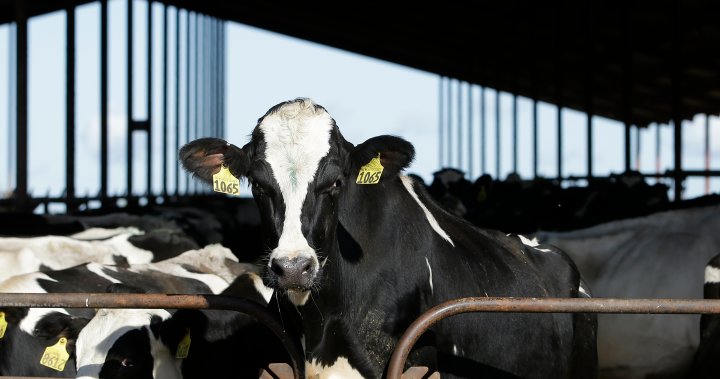As Quebec’s National Assembly resumes its session today, opposition parties see a new opportunity to attack Francois Legault’s CAQ government on its management of the fifth wave of the COVID-19 pandemic, but so far none has emerged as a clear challenger.
The Coalition Avenir Québec government experienced a rare dip in popularity over the last month as the fifth wave of the pandemic took hold.
Legault imposed and then withdrew an unpopular curfew and introduced more lockdown measures. The health-care system has been forced to postpone thousand of surgeries. His director of public health resigned. And Legault proposed a “health tax” for unvaccinated Quebecers that has been criticized.
Sensing vulnerability, the opposition has pounced.
At pre-session caucus meetings last week, Liberal Leader Dominique Anglade suggested the CAQ was being “paternalistic,” and governing based on polls.
Québec Solidaire house leader Gabriel Nadeau-Dubois accused Legault of “bluffing” his way through the pandemic, and Parti Québécois Leader Paul St-Pierre Plamondon said the CAQ was clearly not basing its decisions on science.
But so far, no one party in the National Assembly appears to be benefiting from Legault’s recent malaise. They’re all relatively stagnant in the opinion polls.
The main beneficiary of Legault’s slide seems to be the fledgling Conservative Party of Quebec, led by former radio host Éric Duhaime. The party currently holds one seat in the National Assembly — after Claire Samson crossed the floor from the CAQ. But Samson has announced she will not run again.
The provincial conservatives have positioned themselves far to the right of the CAQ by opposing all public health restrictions related to the pandemic.
This leaves the other opposition parties in a bit of a bind. Even if they collectively manage to weaken the CAQ by attacking its record on the pandemic, they still need to differentiate themselves from each other if they hope to make any gains.
Liberals pivot from hydrogen to attacking 3rd link
Official Opposition Liberal Dominique Anglade and her party have been struggling through an identity crisis for months.
Anglade’s signature announcement at last fall’s party convention was that a Liberal government would nationalize the production of green hydrogen in Quebec as part of a $100-million environmental plan.
The idea landed with a thud, and Anglade hasn’t talked about it much since.
She tried something new last week, pledging — if elected — to scrap the Legault government’s controversial plan to build a new $10-billion tunnel between Quebec City and Lévis. Anglade said she would instead devote the entire sum to health and education.
Both the PQ and Québec Solidaire also oppose the CAQ’s tunnel plan, but neither has promised to scrap the project altogether.
It’s a risky move for Anglade, given the Liberals hold no seats in the Quebec city area and are hoping to make gains. But it may pay off as the project faces increasing scrutiny and criticism from environmental groups
Québec Solidaire seizes on Bill 21
Quebec Solidaire co-spokesperson Gabriel Nadeau-Dubois also pivoted to another issue last week.
He pledged that a Québec Solidaire government would make it possible for teachers in Quebec to wear religious symbols at work, by repealing part of the CAQ’s controversial secularism law, Bill 21.

Nadeau-Dubois stopped short of saying his party would lift the restrictions for other government workers affected by Bill 21 — such as judges, prosecutors and police officers — but it’s the furthest any opposition party in Quebec has gone in opposing the law.
The PQ supports the law, and Anglade has been vague about her intentions.
This is also a risky move, as the CAQ has continually defended Bill 21 by noting that a majority of Quebecers elected them on a promise to implement it. But Bill 21’s popularity has also recently dropped, and Nadeau-Dubois may see the issue as the best chance to distinguish Quebec Solidaire from the other opposition parties.
PQ tries to out-CAQ the CAQ
Of all the opposition parties in the National Assembly, the Parti Québécois and its leader Paul St-Pierre Plamondon have struggled the most to eke out a distinctive identity.

St-Pierre Plamondon’s problem is not that his party is too similar to the other opposition parties, but that it’s often too similar to the CAQ in focusing mainly on French-language and identity issues.
That often leaves little space for the PQ to stand out. The party is now polling lower than Duhaime’s conservatives.
Even when the PQ wins, it can sometimes lose. For example, the party has been hammering a CAQ plan to expand the English-language Montreal Cégep Dawson College, arguing that would contribute to the decline of the French language in Montreal.
Monday, the CAQ announced it was rethinking the plan, essentially stealing the PQ’s argument and taking the wind out of the its sails.
Plamondon insisted last week that what set the PQ apart is its focus on serious ideas.
“We are in a different mentality. We are unique in the sense that we care about bringing forward something that is intelligent and useful in terms of public policy,” Plamondon said.
The National Assembly session resumes later today and will continue until June.
Under Quebec’s fixed election date law an election will happen on or before October 3rd.







More Stories
King Charles set to resume public duties after stepping away for cancer treatment | CBC News
Regina police officer accidentally shot during residence search – Regina | Globalnews.ca
Brave Little Hunter is free: Orca calf swims out of lagoon where it had been trapped for a month | CBC News